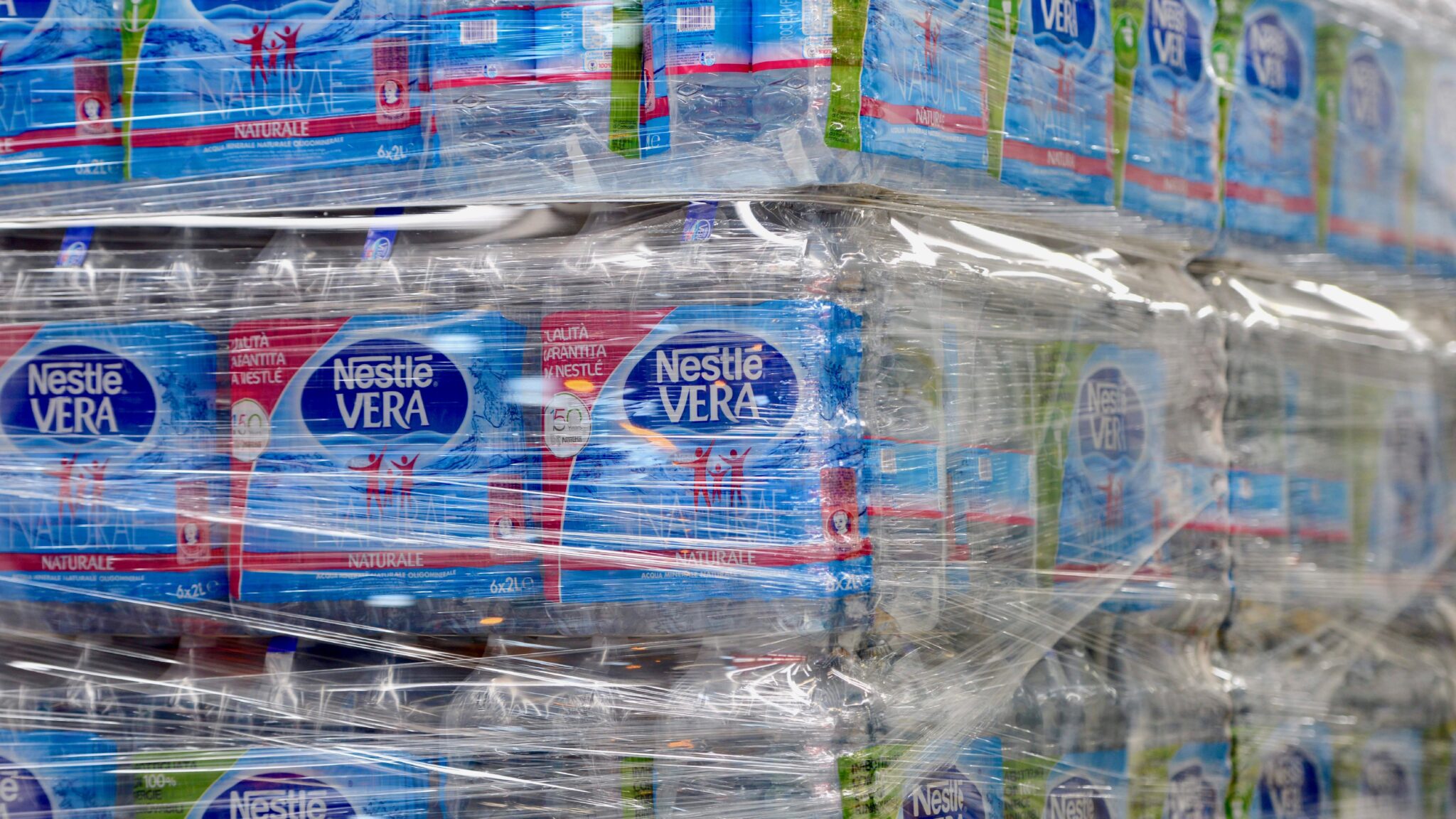
No Nestlé, Bottled Water Is Not an ‘Essential Public Service,’ Court Says

Bottles of mineral water are pictured in a Nestlé water bottling plant located in Castrocielo, central Italy, on July 5, 2016. GABRIEL BOUYS / AFP / Getty Images
Nestlé cannot claim that its Ice Mountain bottled water brand is an essential public service, according to Michigan’s second highest court, which delivered a legal blow to the food and beverage giant in a unanimous decision.
The three-judge panel that sits on Michigan’s Court of Appeals said bottled water is not a public water supply, and Osceola Township was completely within its rights to reject Nestlé’s bid to put a booster pumping structure in an area zoned for agricultural use, as the Detroit Free Press reported.
“The circuit court’s conclusion that [Nestlé’s] commercial water bottling operation is an ‘essential public service’ is clearly erroneous,” the judges wrote, as The Guardian reported. “Other than in areas with no other source of water, bottled water is not essential.”
The issue in question is that Nestlé wants to increase the amount of water it takes from the groundwater in Michigan’s Osceola County from 250 gallons per minute to 400 gallons per minute. Environmental groups say the 250 gallons per minute that Nestlé takes from the groundwater is already too much. They say the effect is already seen in lower levels of nearby wetlands, rivers and streams, according to the Detroit Free Press. Nestlé, however, contends that its operation causes no harm.
Michigan’s Department of Environmental Quality approved a permit for the increase last year, but that decision is awaiting an appeal. In order to extract so much water, the Nestlé needs a booster pump station along the pipeline that carries water from the well to tanker trucks, as the AP reported.
The owner of the property where Nestlé wants to install the booster pump station agreed to the project, but the township said the structure is not allowed in an area zoned for agriculture, according to the AP.
For Nestlé to carry out its plan, it has to prove that it provides an essential public service, which the court rejected as implausible. The ruling may have a ripple effect on Nestlé’s ambition to privatize water around the country, as The Guardian reported.
“What this lays bare is the extent to which private water marketers like Nestlé, and others like them, go [in] their attempts to privatize sovereign public water, public water services, and the land and communities they impact,” said Jim Olson, an environmental attorney in Michigan, according to The Guardian. Olson, who has previously battled Nestlé, added that any claim that the food giant is an essential public service or a public water utility is “ludicrous.”
The Michigan environmental attorney Jim Olson, who did not represent Osceola township but has previously battled Nestlé in court, said any claim that the Swiss multinational is a public water utility “is ludicrous.”
Olson said the decision is a huge victory. “In the context of the larger question, ‘Who owns the water?’ — in this round, the state and public do, because selling containerized water for profit is simply private, not public,” Olson said to The Guardian.
The AP reported that Nestlé argued that the township’s denial of the zoning permit was a backdoor way of stopping the company from ramping up its water production. The judges, however, said there was no proof of that.
“Ultimately, the township is attempting to enforce its zoning ordinances,” according to the opinion by Judges Cynthia Stephens, Deborah Servitto and Amy Krause, as the AP reported. “Enforcing a zoning ordinance is neither exceptional nor forbidden.”
The judges’ comments about Nestlé not being a water service nor returning anything to water table provided a boon to environmental groups and Native American tribes contended that the permit to increase production to 400 gallons per minute should be overturned.
“[Nestlé] extracting water and sending it to other places where it cannot return to the water table, and, critically, doing so faster than the aquifer can replenish, is an ‘irretrievable’ depletion unless the pumping is reduced or halted,” the judges wrote, as The Guardian reported.

 233k
233k  41k
41k  Subscribe
Subscribe 